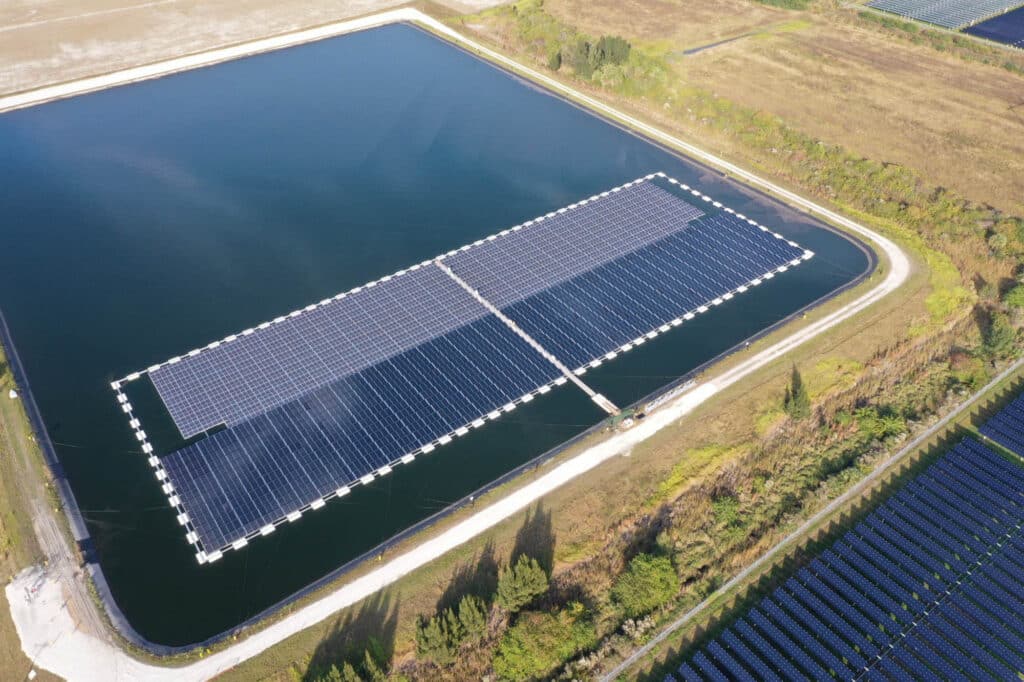The Power of Floating Solar
Green Energy Production through floating solar systems is rapidly gaining popularity in the United States due to its enormous benefits of conserving both water and land simultaneously. The combination of proven technology of solar power generation along with floating dock technology provides an alternative to traditional ground mount or rooftop solar. Floating solar takes up less space, produces more energy output, reduces evaporation and water temperature – all of which are positive changes in combating climate change and reducing our carbon footprint.
Increased Energy Output: The internal cell temperature of each solar panel is decreased due to the cooling effect of water, allowing solar panels to operate more efficiently. This can lead to an increase in energy output of up to 15-20%. Seasonal tracking systems on water can expect an additional benefit of 3-5%.
Reduced Water Loss from Evaporation: Studies have shown that floating solar can reduce overall evaporation by up to 50% over the array. This is especially beneficial in areas that are prone to drought. Global estimates on water saving potential reaches billions of gallons annually.
Improved Water Quality and Reduced Algae Growth: Floating solar shades the water and reduces the amount of sunlight that reaches the surface. The absence of sunlight will limit algae growth, , along with decreasing stratification which separates water into layers, and alters oxygen levels within the water, making them unsafe to consume.
Land Conservation: With land values constantly increasing, utilizing floating solar over traditional ground mount solar can help to conserve land for other purposes, such as farming or housing. With over 450,000 acres of deemed non-recreational water in the state of Florida alone, floating solar installations can use bodies of water to avoid land acquisition costs and natural habitat disruption challenges.
Easy Integration to Existing Infrastructure: Hydropower plants and water treatment facilities make good partners with adjacent floating solar deployments to share resources in clean energy production.
Lower Operations and Maintenance Costs: No vegetation concerns, or electrical damage from burrowing rodents.
Qualifies for Tax Credits: Installation of floating solar systems will be eligible for the Solar Investment Tax Credit or Production Tax Credit.


